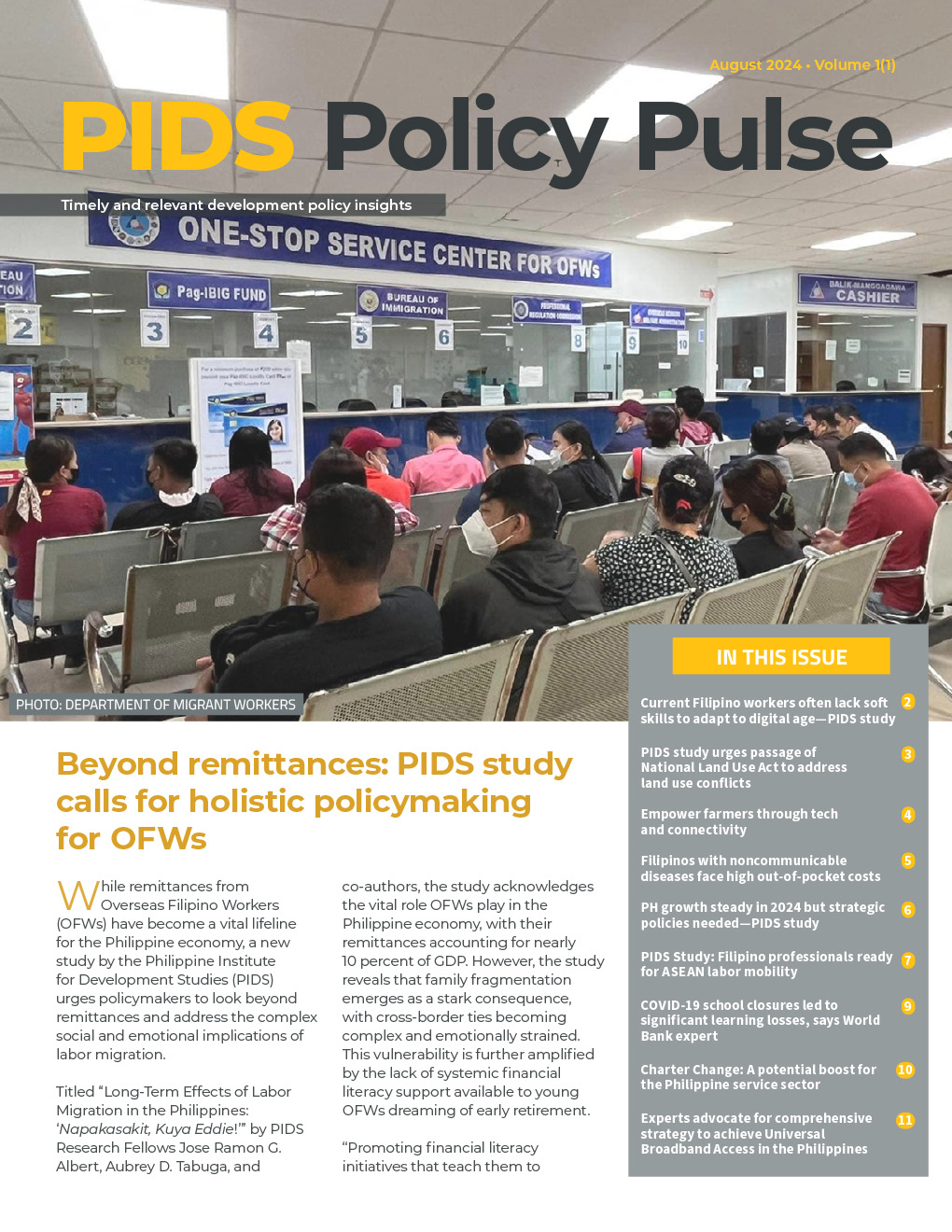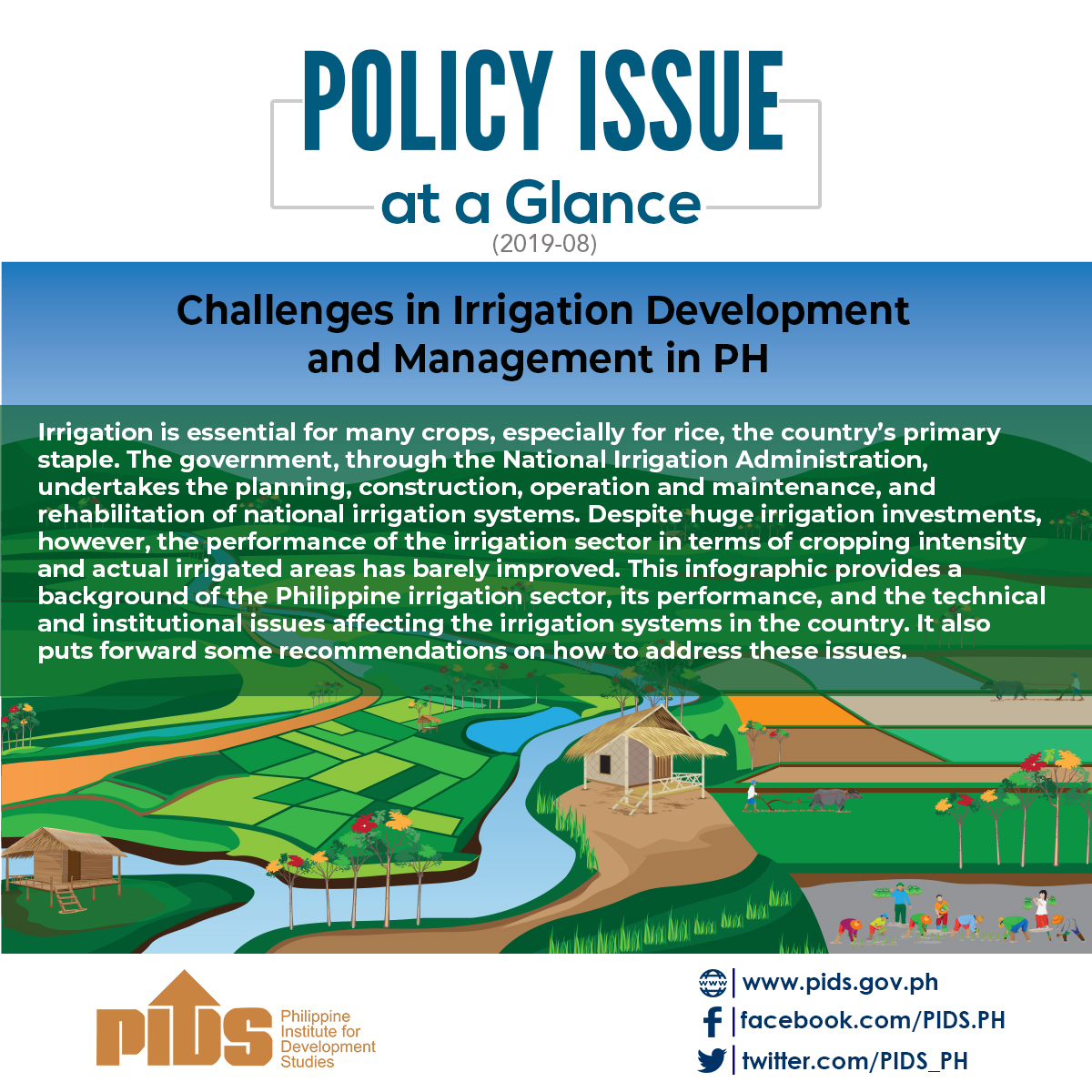THE Philippine Institute for Development Studies (PIDS) is pushing for the merger of the country’s top investment promotion agencies (IPAs), as well as the abolition of the income-tax holiday (ITH), to better streamline the incentives being given to businesses and plug the government’s revenue leakage.
In a Policy Note authored by PIDS senior research fellow Rosario G. Manasan and supervising research specialist Danileen Kristel C. Parel, the state think tank said this proposal is also contained in Senate Bill (SB) 987, or the so-called Recto Bill.
The measure, the PIDS noted, is more favorable than SB 35, or the "Villar Bill.”
The Recto Bill advocated for the merger of the Board of Investments and the Philippine Economic Zone Authority to be called the Philippine Investment Promotion Administration (Pipa).
"Senate Bill 987 is better than SB 35 in the sense that it can reduce the redundancy rate more effectively because it provides incentives to a limited number of enterprises, thus, eliminating those that will still invest even without the incentives,” the policy note stated.
Manasan and Parel said under SB 987, only export and domestic enterprises in the 30 poorest cities nationwide will qualify for fiscal incentives. Under SB 35, the authors said, those qualified to seek incentives include domestic enterprises and domestic strategic enterprises. The authors explained that SB 987’s proposal will limit the grant of fiscal incentives and lessen incentive redundancies.
Further, Manasan and Parel said this will also promote the spread of industries and promote economic growth in less-developed areas in the country. The authors also said the abolition of the income-tax holiday (ITH) under SB 987 is favorable. In lieu of this, the bill advocated for the reduction of Corporate Income Tax (CIT).
However, Manasan and Parel said the CIT must be recalibrated, since the current 15 percent was on the high side compared to international standards.
"The reduction of CIT rates also has to be time-bound. Some might argue that by setting time boundaries to the reduction of CIT rates, it might just be like the ITH that would attract footloose industries, but would exit the market after the CIT rate-reduction period has lapsed,” the authors added.
The study noted that there are 140 laws granting fiscal incentives in the Philippines. These gave birth to various kinds of incentives in effect in the country, such as ITH, which meant no taxes for a period of time; investment allowances and tax credits; reduced CIT rates; accelerated-depreciation scheme; exemptions from indirect taxes; and export-processing zones.
There have also been redundancies in the implementation of incentives. In 2004 the government’s foregone revenues due to these incentives reached P43.18 billion, or around 1 percent of the country’s gross domestic product in that year.
"While fiscal incentives serve as a promotional tool for investment, other determinants of the attractiveness of a country to investments cannot be compensated for by just the granting of incentives,” the study stated.
"The overall investment climate, which includes the presence of infrastructure, cheap labor, and consistent and predictable policy and regulatory environment, is deemed to be more important than the provisions of fiscal incentives,” it added.
In the second quarter of 2014, the Philippine Statistics Authority said the total approved investments through IPAs of both foreign and Filipino nationals reached P257.8 billion.
Filipinos continued to dominate investments approved during the quarter, sharing 86 percent, or P221.8 billion, worth of pledges. The bulk of the investments committed by the foreign and Filipino nationals is intended to finance activities in electricity, gas, steam and air-conditioning supply, contributing P167.1 billion, or 64.8 percent, followed by real-estate activities at P25.4 billion, or 9.9-percent share; and manufacturing, at P24.6 billion, or 9.5-percent share.//












